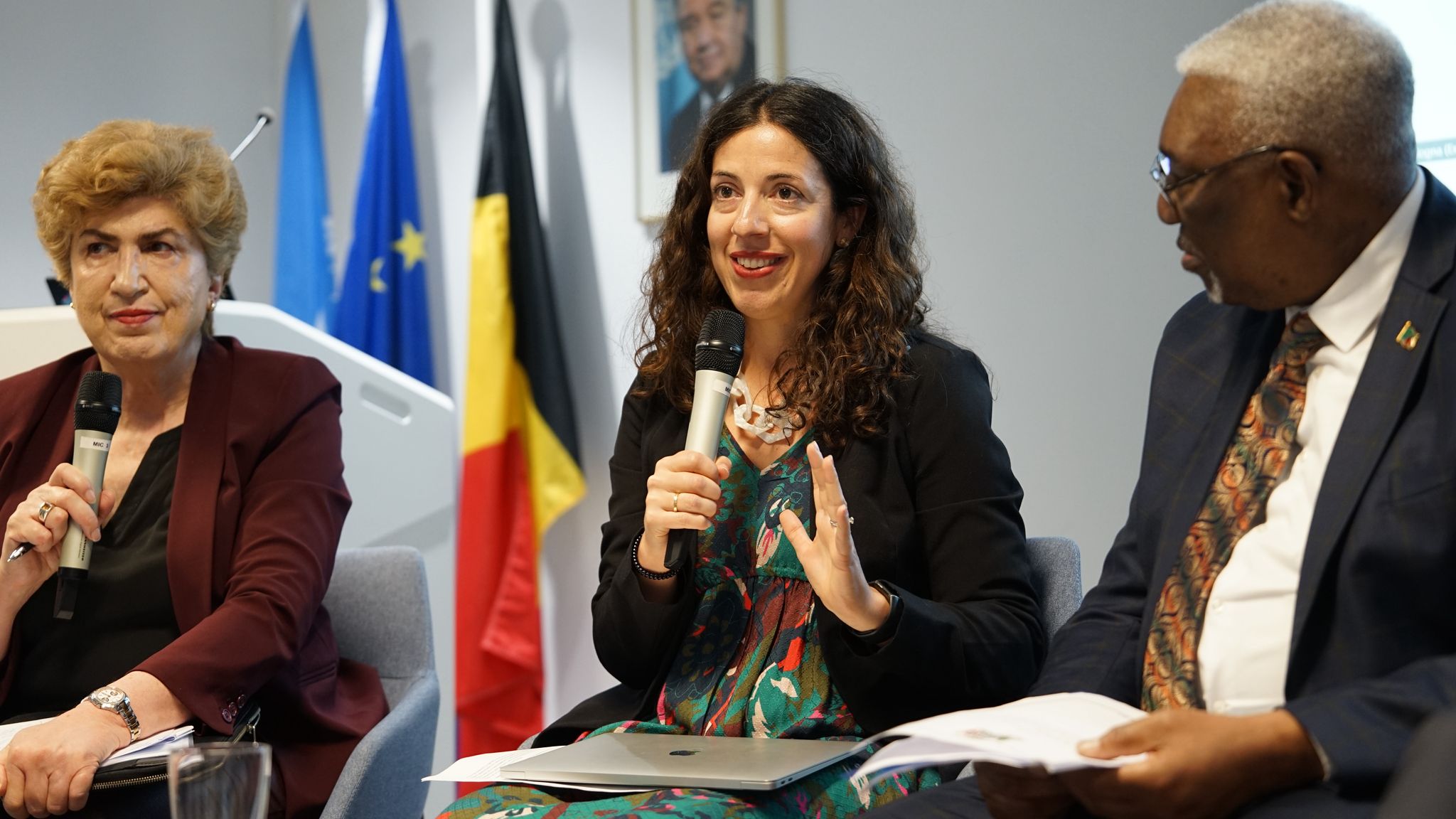
As momentum builds toward the Fourth International Conference on Financing for Development (FfD4), the Center for Economic and Social Rights (CESR) emphasized the urgent need to transform the global financial system through a human rights lens at a high-level event hosted by the United Nations in Brussels.
Speaking on behalf of CESR during the opening panel of “Financing Our Future: Towards the 4th International Conference on Financing for Development,” Executive Director María Ron Balsera underscored that the current international financial architecture is entrenching inequality and undermining governments’ capacity to fulfill their human rights obligations. She called on states to use the FfD4 as an opportunity to commit to structural reforms that prioritize people and the planet over profits.
“The global debt crisis, paired with growing climate and development financing gaps, reveals just how deeply flawed and unjust the system remains,” Ron Balsera said. “Without meaningful reform, including a UN-led statutory mechanism for debt restructuring and a rights-aligned framework for international tax cooperation, the promise of sustainable development will remain out of reach for many.”
Ron Balsera’s remarks were part of a panel that also featured Barry Andrews, Member of the European Parliament (MEP) and Chair of the Development Committee; Shari Spiegel, Director of UNDESA’s Financing for Sustainable Development Office; and Ambassador Lamin Dibba of The Gambia. The discussion focused on the need to move from easing access to finance toward transforming the structures that produce inequality and debt dependency.
MEP Barry Andrews noted: “The argument on official development assistance (ODA) is being lost, but we have evidence now that ODA not only reduces poverty but also pays for itself. The EU is going to be a major player on ODA in the current geopolitical scenario. This is an opportunity for the EU to reaffirm its values and its treaty obligations.”
Ambassador Dibba added that “the reform of the international system is not a choice—it is a necessity,” reinforcing the call for deep, structural transformation of global financial governance.
Drawing from CESR’s Rights-Based Economy framework, Ron Balsera outlined a set of proposals to strengthen the FfD agenda. These included conducting human rights impact assessments in all debt negotiations, reforming debt sustainability assessments to reflect states’ ability to fulfill rights, regulating private creditors, and ensuring inclusive participation—especially of communities historically excluded from economic decision-making.
As part of the #RoadtoSevilla, the Brussels event brought together EU institutions, UN officials, and civil society actors to build momentum toward a fairer, more inclusive financial system. CESR’s intervention served as a reminder that the FfD4 must center rights, equity, and global solidarity to address the root causes of fiscal injustice.